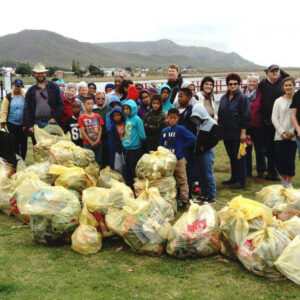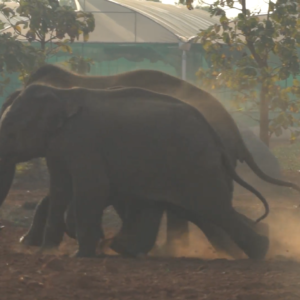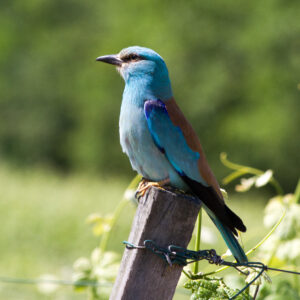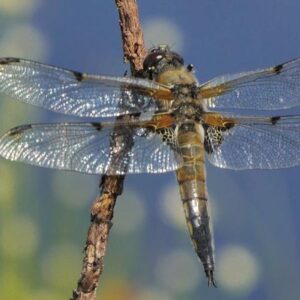
Protecting Dakatcha Woodland
Dakatcha Woodland on the coast of Kenya is one of the 10 most threatened forest hotspots in the world. Dakatcha is critical for the conservation of 13 IUCN Red Listed species. It is currently being cleared for charcoal and agriculture at an alarming rate. A Rocha Kenya is purchasing land to create a nature reserve and safeguard this indigenous forest and its threatened wildlife.
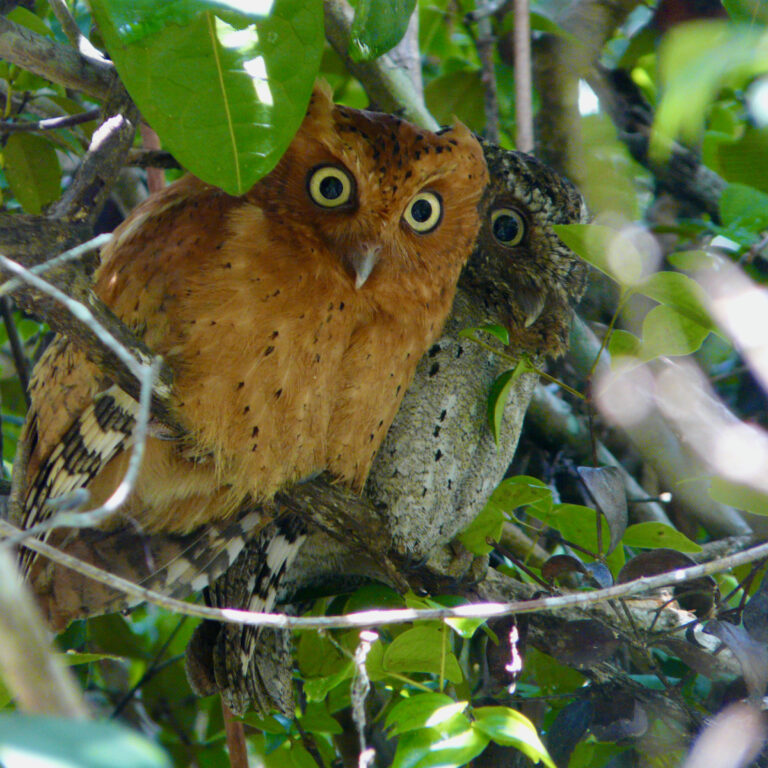
Protecting wildlife in Dakatcha
Dakatcha is home to Africa’s smallest owl, the Sokoke Scops Owl, which is only found in three locations across Kenya and Tanzania.
Dakatcha lies within the East African Coastal Forest Hotspot and is a diverse mosaic of different forest types, savannah and seasonal wetlands. Poaching of wildlife, including the endangered Golden-rumped Sengi, is rife.
A Rocha Kenya has been working in Dakatcha Woodland since 2000. Our scientific monitoring has confirmed the importance of this woodland for endangered and endemic species such as Sokoke Scops Owl Otus ireneae, Sokoke Pipit Anthus sokokensis, Clarke’s Weaver Ploceus golandi and Golden-rumped Sengi Rhynchocyon chrysopygus.
Threat of deforestation
The woodland is being destroyed at an alarming rate due to rampant charcoal burning and the uncontrolled expansion of pineapple plantations. Local regulations give little consideration to the immense pressure placed on the forest, and poor farming methods leave the soil exposed for erosion.
Brachylaena huillensis trees have almost disappeared due to selective harvesting for the wood carving industry, and the timber from large hardwood trees (e.g. Newtonia hildebrandtii) is sold in coastal towns.
With easy access to chainsaws and motorbikes to transport charcoal, forest clearing has intensified in recent months, and this indigenous forest is being burnt down at an alarming rate. We must act now, before it is too late!
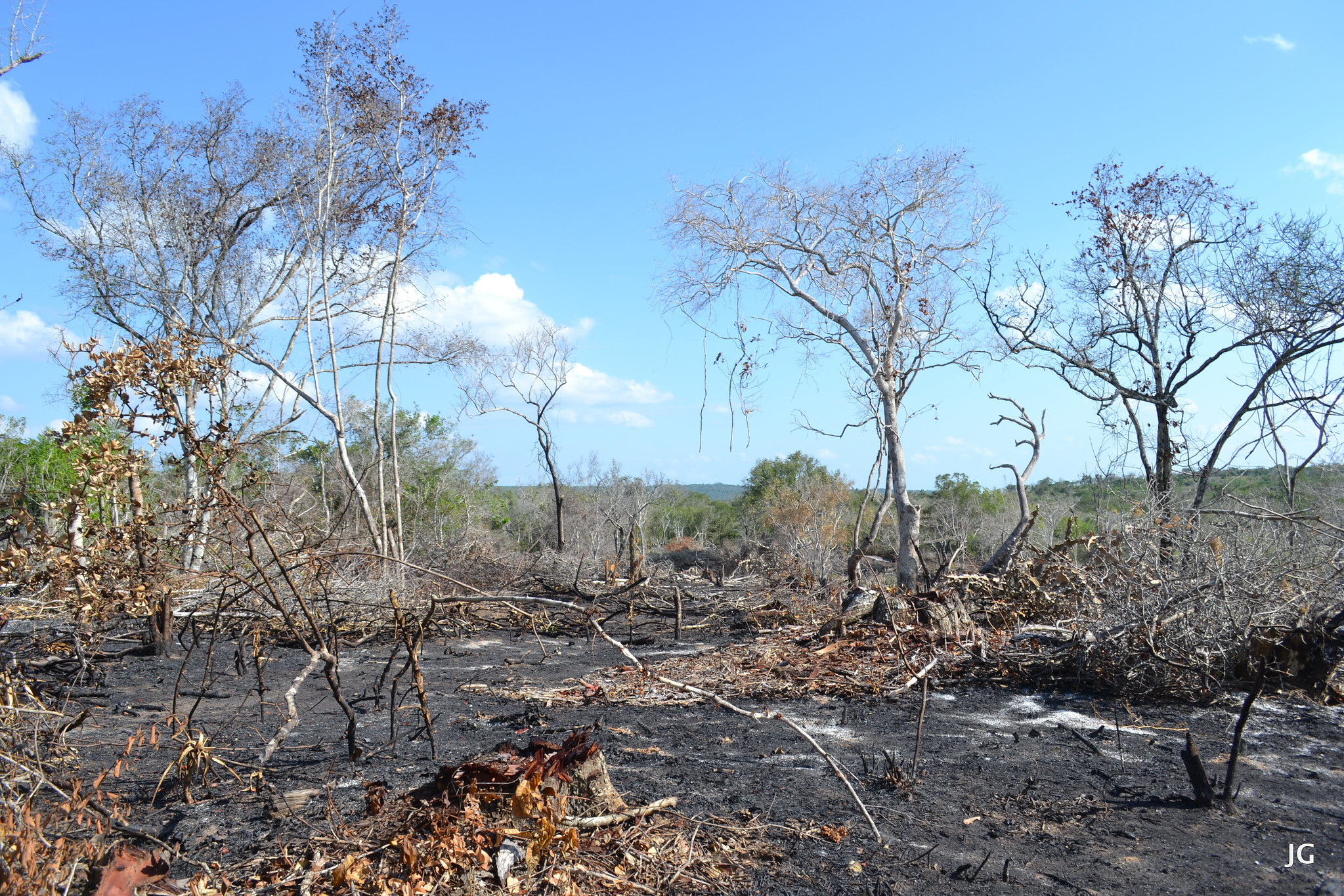
Creating a nature reserve
With help from others, A Rocha Kenya is buying blocks of forest from willing sellers and creating a nature reserve to conserve this unique landscape, but there is high demand and high prices for the land.
Already A Rocha Kenya has acquired 1,517 acres of the planned 10,500–acre A Rocha Dakatcha Nature Reserve, but there is an urgent need to secure more before they are bought to be burnt for charcoal or ploughed for marginal agriculture.
The A Rocha Kenya team involve neighbours in sustainable management of their land. They teach in schools and churches and introduce restorative farming and income-generating activities such as honey production.
Read the A Rocha Kenya page about Dakatcha Woodland
For more details on our nature reserve and land purchase strategy, please read our Conservation Strategy.
Join us at this critical point in the Sokoke Scops Owl’s story and save their home! One acre of land costs $350 / Ksh 35,000 to secure. Donate via GoFundMe, M-Changa or A Rocha International.
Project in partnership with BirdLife International, Kenya Bird Map and Nature Kenya.
A Rocha Kenya Conservation Research Reports
Colin Jackson, David Ngala, Wellington Kombe. 2000. Reconnaissance of Dakatcha Woodlands for Clarke’s
Weaver Ploceus golandi, Malindi District, 11-13 August 2000 A Rocha Kenya Occasional Research Report #1.0. 13pp
James J. Waters, Colin Jackson & Roni G. Jackson. 2007. Forest Cover Survey, Arabuko-Sokoke Forest, Kenya, 2006 A Rocha Kenya Occasional Research Report #6. 25pp
Kristel S.S. van Houte-Howes. 2005. Macroinvertebrate communities in intertidal mudflats at the Sabaki River Estuary, Kenya: An important habitat for resident and migratory shore birds A Rocha Kenya Occasional Research Report #7. 5pp
Simon Valle & Colin Jackson. 2006. Low Tide Counts of Water Birds at Sabaki River Mouth Malindi, Kenya A Rocha Kenya Occasional Research Report #9. 21pp
Laban N. Njoroge. 2006 An Entomological survey of Sabaki River Mouth, Kenya A Rocha Kenya Occasional Research Report #10. 25pp
Colin Jackson, Albert Baya, Rebecca Vande Griend, David Bruinsma. 2012. Surveys of the Amani Sunbird
in Arabuko-Sokoke Forest, 2007-2011 A Rocha Kenya Occasional Research Report #14. 4pp
Get our email updates
We would love to keep you updated by email with new videos and inspiring stories from around the world, as well as opportunities to get involved and make a difference.
Get our email updates
We would love to keep you updated by email with new videos and inspiring stories from around the world, as well as opportunities to get involved and make a difference.
